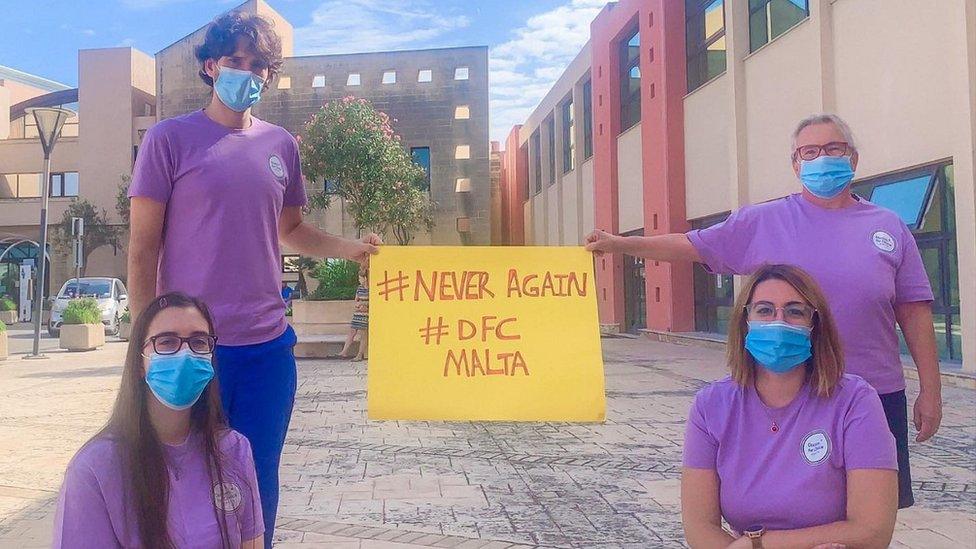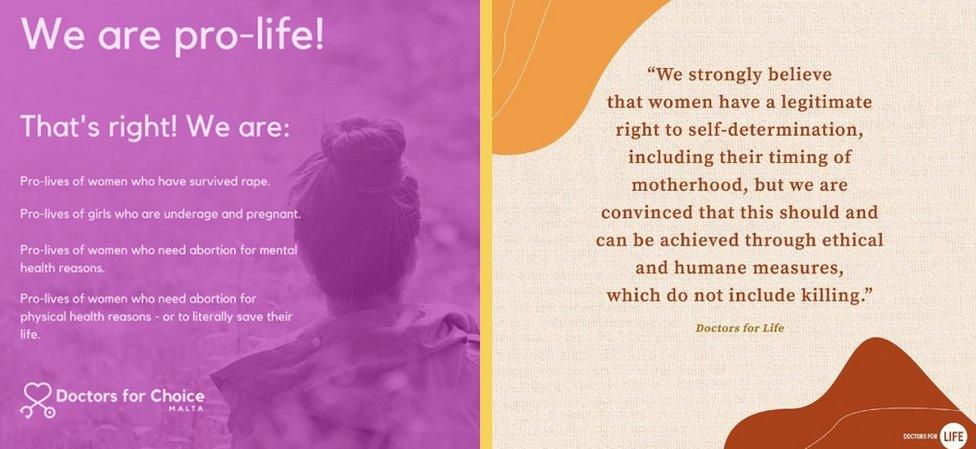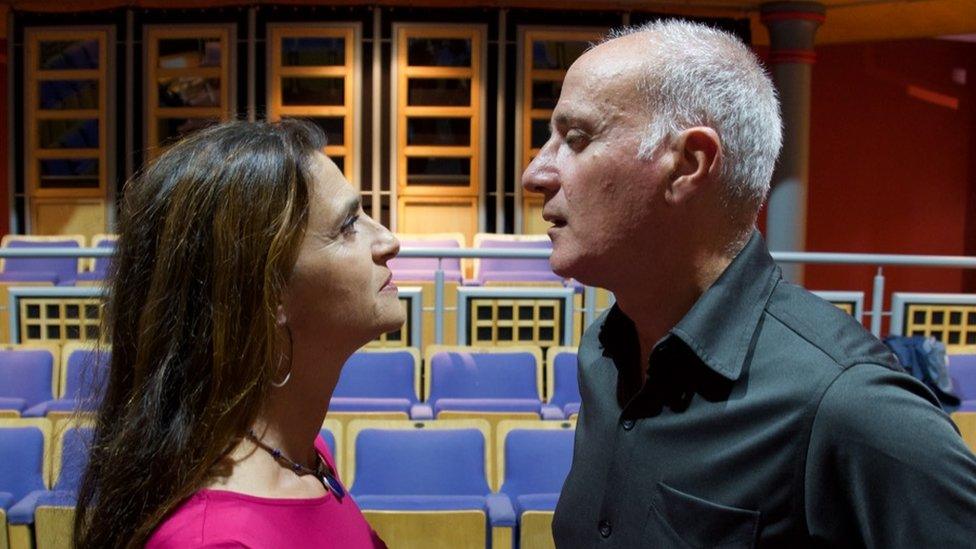Covid: Locked-down women turn to pills amid Malta abortion ban
- Published

Doctors for Choice - campaigning against Malta's strict ban on abortion
Catholic Malta has the strictest ban on abortion in the EU, but during the pandemic more Maltese women have been ordering abortion pills from abroad, unable to travel because of the lockdown.
Veronica - not her real name - was among them. "It was a big burden for me. I already have two kids with learning difficulties. I came off the [contraceptive] pill, as the doctor suggested I switch to an IUD for health reasons. I was waiting for the appointment, but Covid came and cancelled all the hospital appointments."
Not long after that Veronica got pregnant.
"I had to decide what is best for me and the children," she says. "The best for my health, the best financially… plus the father immediately told me to abort."
Abortion is completely illegal in Malta, even if the woman's life is at risk.
Without the option of travelling abroad, Veronica didn't know what to do. She contacted local women's rights activists, who put her in touch with a foreign NGO.
It was through them that Veronica was able to safely get hold of abortion pills, which can be taken up to the 12th week of pregnancy.
Isolated by coronavirus
Abortion is a crime in Malta, punishable by up to three years' prison for the woman herself and anybody who may have assisted her.
An estimated 300-400 Maltese women travel abroad every year to get an abortion, usually to the UK. But pandemic travel restrictions have made this option far less viable.

People on the overwhelmingly Catholic island of Malta are mostly anti-abortion
The Abortion Support Network (ASN) is a UK-based charity offering information and funding to cover the cost of travel and accessing abortion. It had 110 Maltese requests in 2020 - up from 75 the previous year, when it first opened up services to the Maltese.
According to ASN founder Mara Clarke, the pandemic has been a social leveller.
"When they close the airport and you live on an island, suddenly it gives everybody a taste of what it means to live in a place where there is a horrible abortion law."
It is not clear if the rise in requests is down to increased numbers of women wanting abortions, or increased awareness that help is out there.

Rival campaign messages: pro-choice doctors and anti-abortion doctors (source: Facebook)
Malta's state religion is Catholicism, but the country legalised divorce in 2011 and same-sex marriage in 2017. Church attendance is falling, but the Maltese remain firmly anti-abortion.
Tonio Fenech, a former finance minister, is now the co-ordinator of Catholic Voices Malta, a network promoting Catholic values. "The public at large is still a society which is very much against abortion," he told the BBC.
"We value every person and we also feel for the mother who may be experiencing difficulties. We believe that the solution to those difficulties is not in sacrificing another human being, but rather in trying to support the mother to have also that opportunity to cherish the child, in an environment where she can continue to live her life."

Read more on abortion controversies:
Coronavirus: Women denied abortions because of the pandemic

The Pope's native Argentina, another mainly Catholic country, has just legalised abortion up to 14 weeks. And over the past two years, pro-choice activists have become more vocal in Malta.
In 2019, Doctors For Choice was set up by a group of medics to press for legislative change, as well as improve sex education and access to contraception.
One of its founding members, gynaecologist Prof Isabel Stabile, has spent the pandemic raising awareness about abortion pills, a method traditionally used less in Malta because of safety concerns and penalties for possession.
In September, Prof Stabile swallowed fake abortion pills outside parliament with a group of activists. She appeared on television too with fake pills, demonstrating how easy it is to order and take them.
According to her, more than 150 packs of abortion pills were delivered to Malta while flights were grounded to curb coronavirus.
Veronica said the process of ordering the pills was easy, but "the problem was that I waited nearly nine weeks for them because of Covid".
"I am relieved that it is all over," she added.
While Doctors For Choice has around 60 members, Doctors For Life, a rival group, has over 670 members.
Its PR head Dr Gabriel Ellul thinks that a rise in requests for abortion pills suggests a "disrespect for a human life". He says improved sexual education on contraception is needed, for "women and men to become more attuned to how they could be sexually active without actually becoming embroiled in such problems".
ASN's Mara Clarke says "I do think that the long-term legacy of the coronavirus is going to be an increased awareness, not only of abortion pills, but of how safe they are.
"We are super-fortunate that everyone in Malta who contacted us during the pandemic was able to access an abortion."
You can find out more about Malta, Catholicism and abortion in this week's episode of Heart and Soul on the BBC World Service here.
- Published19 October 2018
